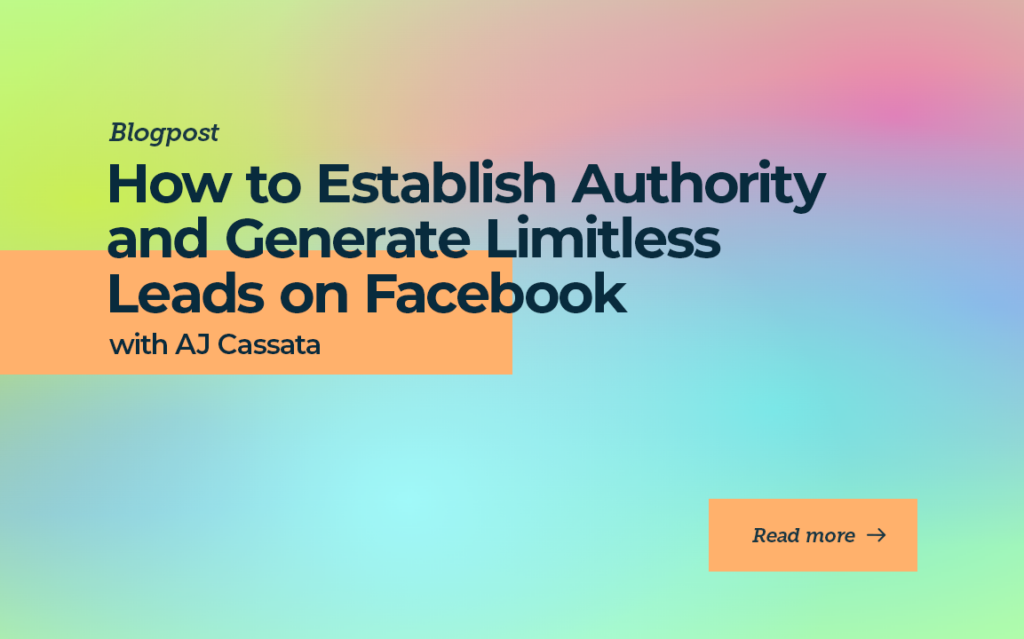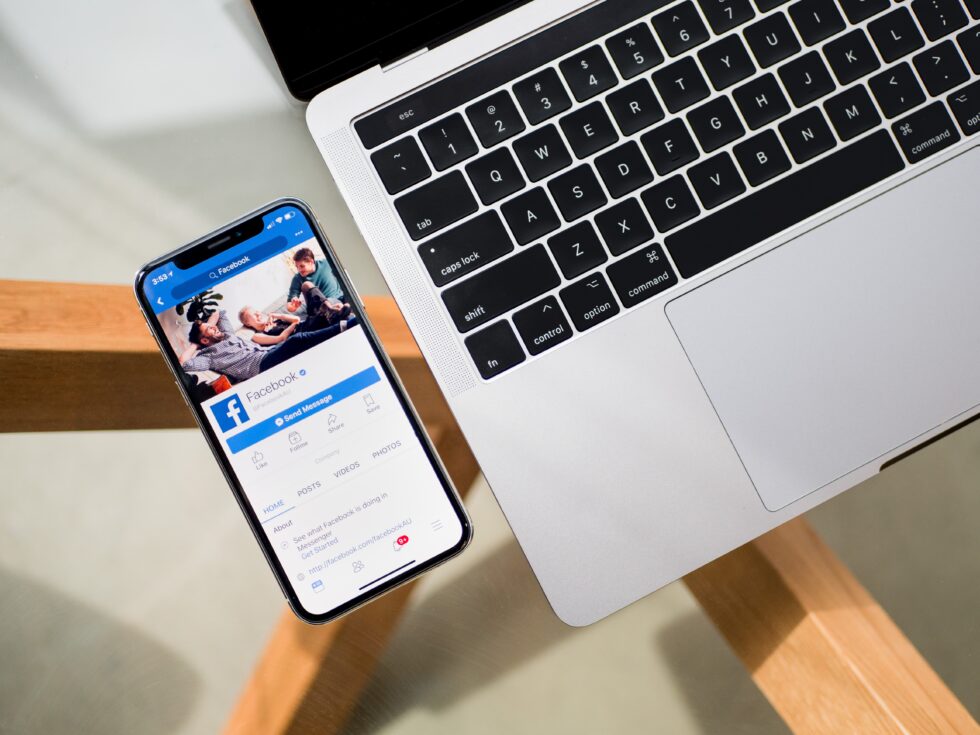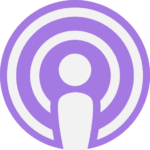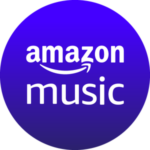How to Establish Authority and Generate Limitless Leads on Facebook with AJ Cassata

AJ Cassata is the Co-Founder & CEO at RevenueBoost, a B2B sales and marketing consulting company focused on helping agency owners build their sales engines.
He joined the Predictable Revenue podcast to discuss establishing authority and generating leads through community and organic content, along with tips for prospecting on Facebook.
How AJ Got Into Sales Development Consulting
Before co-founding RevenueBoost, AJ worked in sales at multiple companies and discovered a passion for digital marketing. The common thread between his success in each role was outbound sales development–a topic he realized most marketing agencies lacked education on.
While many of AJ’s agency clients wanted to generate more leads through sales development, he often found they needed help in other areas like strategy, offer optimization, and messaging.
How Community Drove Early Growth at RevenueBoost
Aside from LinkedIn and Facebook messages, AJ and his co-founder chose to invest in a Facebook group as their primary sales development strategy at RevenueBoost.
The idea was to blend inbound marketing and outbound sales development by sharing free content and direct messaging every person who joined. This method allowed them to create engaging content while generating new leads for outreach at the same time.
Why a Facebook Group?
At the time, groups were a relatively new feature on Facebook, and the platform was pushing them constantly, which led to increased visibility. But even now, Facebook groups remain a great tool for connecting with your target audience.
An active community lends credibility to your brand and gives your audience more opportunities to engage, as opposed to static social media posts. Private communities feel much more authentic than other types of content.
Another benefit is that giving away value for free makes your prospects more likely to trust you. If you’re selling a high-ticket offer, it takes time for someone to trust you enough to work with you–hosting a group where you give away free value is a great way to accelerate that process.

How to Choose the Right Platform for Your Community
The best platform for your community is whichever platform works best for your audience. For RevenueBoost, that was Facebook, but for your ideal customer, that may be Slack or Discord.
Facebook is a popular choice because it’s accessible, has no entry barriers, and has a built-in traffic source. Your prospects likely already have a profile on Facebook, so it’s a relatively small ask to get them to join your group.
On the other hand, communities like Slack are more private and often more engaged. These platforms are better used as a communication tool with your existing audience than as a tool for growth.
Two Factors to Consider Before Starting a Community
Before creating a Facebook group or another type of community, you must be committed to your niche. Know who you’re speaking to so you can create content that serves that audience. You may change your offers over time, but your group will continue to grow as long as you’re still serving the same audience.
Second, be willing to accept that growing a community takes time. This is a long-term investment in your brand.
If you need to generate new leads within the next few months, consider prioritizing other sales development methods like cold calling or email outreach. Revisit the community once you have at least 6-12 months of time to invest.
The Process of Building a Community
Before creating your group, make sure you have clear goals in mind. Like any other business, you’ll need to know your ideal customer profile (ICP), messaging, and strategy.
The early stages of your group will require constant engagement and content creation. You’ll also need to learn the features of Facebook groups (if that’s your chosen platform), optimize your group for keywords, and update your personal/business profile.
Add a well-designed cover photo with your niche-specific group name to make your group appear more professional. Then you can begin to add pieces of training, lessons, and courses for your community. Having some content in the group ahead of time sets the stage, so people know they’re joining an active community.
Lastly, if you get stuck, look to other successful group owners in your niche to see what they’re doing that’s working.
How to Get People to Join Your Community
The early stages of growing a community are the hardest. Start by inviting your warm network, people you already know, or friends of friends. Rather than inviting random people off Facebook, ask your friends to invite people they know, so the invitation comes from a familiar face.
Another way to grow your group is to optimize your Facebook profile. Consider this a landing page for your community, with an optimized cover photo and tagline pointing people toward your group. That way, your followers will be reminded of the group whenever you post on Facebook.
Once you’ve got some initial members in the door (along with quality content), your group will naturally spread through word of mouth. To grow even faster, reach out to influencers in your niche; rather than trying to grow your audience, use someone else’s following.
If you can get content creators on board, use the opportunity to promote a free resource within your community. AJ followed this strategy and once had 800 people join their Facebook community from a single Youtube video.
Tips to Keep Your Community Engaged
So many Facebook groups are abandoned by their creators or their community members. Here’s how to beat the odds and keep your community thriving long-term:
Ask other people to contribute.
In the beginning, you’ll likely be the only person posting in your group, and that’s okay. Stay consistent and post every day while you actively search for new members. Once your group reaches a certain size, you can switch your focus to engaging those group members.
If a friend shares an interesting post, ask them to share it again inside your group. Just 3-5 content creators sharing regularly is enough to keep the rest of the community engaged.
Strike a balance between providing value and generating leads.
The key to an engaged community is to lead with value. Focus on giving away free knowledge without any expectations of a sale. AJ recommends that 80-90% of your content should be value-driven, if not more.
The interesting part of this approach is that people may still reach out to work with you. If you create great content within your community, people will naturally be curious about what you do and click through to your website or landing page.
As for the sales development process, most of that happens behind the scenes.
The prospecting process inside a Facebook group.
The team at RevenueBoost doesn’t actively promote their offers in the group often, but that doesn’t mean they aren’t selling. Instead of pitching in the group, their sales development team uses the DMs to conduct a mini-discovery process.
When a new member joins the group, they’re automatically asked three questions:
- What’s your email?
- What’s your business revenue?
- What do you want to learn?
The second question acts as qualification criteria, and the third provides a conversation starter. A sales rep can then reach out with a personalized message, offering that person resources on a specific topic they are interested in.
Facebook has this question capability built in, but you’ll need to use a tool like groupconvert.com to extract the data. From there, each member is tagged in ChatSilo based on their stage of the sales development process.
Is Community the Key to Better Prospecting?
Regardless of your chosen platform, growing an engaged community only positively impacts your business. An active group builds authority, creates trust with your audience, and leaders to warmer, more qualified leads.
If you want to connect with AJ to learn more about prospecting and community building, reach out on LinkedIn or join the Facebook group B2B Sales and Marketing Secrets.
NO TIME TO READ?
Listen On:



